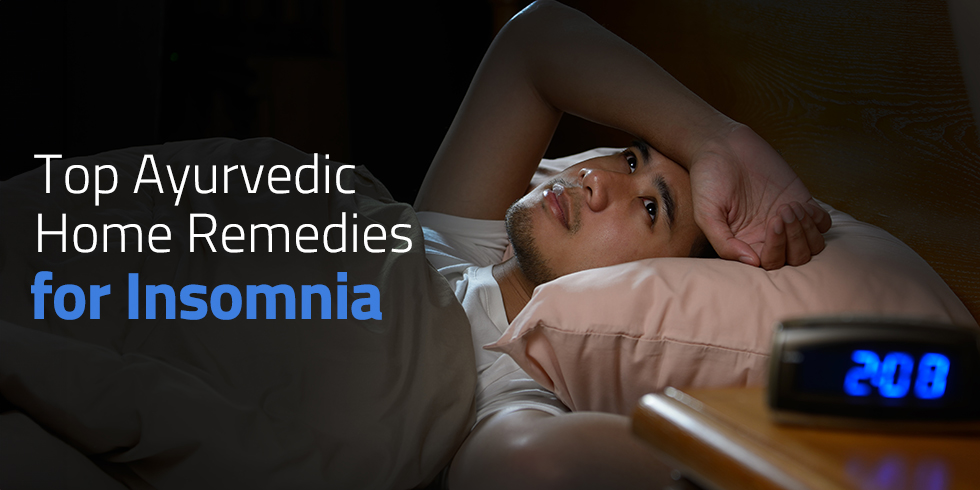Ayurveda, a traditional system of medicine from India, is a full-scope system of health care relating to balance and union in terms of physical and mental condition. Insomnia or sleeplessness is extremely common and widespread nowadays suffered by many people. It can create different problems like stress, anxiety, depression, weak immune system and so on. In Ayurveda, the problem of insomnia is resolved with natural remedies using the holistic approach of treating the cause of the problem itself. This detailed guide outlines step-by-step Ayurvedic remedies that can treat insomnia through relaxation techniques and changes in diet, as well as identification of the right herbal formulations that are going to enhance your quality of sleep.
Cause of Insomnia According to Ayurveda
According to Ayurveda, sleeping disorders are said to be primarily an imbalance of doshas with Vata, Pitta, and Kapha. Each dosha is important for our well-being and has an impact on the digestion, mentality, and functioning of the body down to its finest details. Insomnia is mostly considered to be a Vata disorder with the kind of dosha that basically relates to an excess of air and space elements in the body, thus causing a person to be restless and anxious with difficulty finding sleep. However, in Pitta and Kapha, imbalance and troubled sleep can occur alternatively due to overheating, while the other causes include excessive heaviness and, thus, a tendency to sleep more.
Consequently, insomnia, from an Ayurvedic perspective, can also be caused by the Prakriti (constitution) of an individual and corresponding doshic imbalances. This approach is holistic and goes beyond the treatment of symptoms but strives to restore a natural balance in the human body and mind, therefore contributing to humans’ overall health and well-being. Understanding one’s constitution and the nature of the sleep disorder requires taking the first step in using Ayurvedic principles towards balancing one’s life energies for bettering sleep quality.
Ayurvedic Strategies to Balance Doshas
Balancing the doshas would be the basis of Ayurvedic treatment for insomnia, which would include some lifestyle adjustments, dietary changes and the use of particular herbs that help orchestrate the aggravated dosha(s) down.
A regular routine is required in Vata-related insomnia, with attention to getting ready for bed so that the body and mind are peaceful before sleep. Cooling practices help prevent overheating environments associated with Pitta-related sleep difficulties. Stimulating activities and avoiding heavy meals before bedtime best suit Kapha’s imbalance.
Relaxation Techniques for Better Sleep
Ayurveda offers the following relaxation techniques for relaxing the mind and preparing for sleep:
- Pranayama (Breathing Exercises): Techniques such as Anulom Vilom (Alternate Nostril Breathing) and Bhramari (Bee Breath) can produce very tranquillising effects, reduce stress levels, and initiate the required state for relaxation or sleep.
- Yoga: Devotional gentle yoga poses such as Balasana (Child’s Pose), Supta Baddha Konasana (Reclining Bound Angle Pose), and Viparita Karani (Legs-up-the-Wall Pose) are helpful and hence assist the process of calming the body down as well as releasing the stress.
- Meditation and Mindfulness: The practice of mindfulness meditation before sleep helps cool the mind and relieve anxiety, which in effect would facilitate falling asleep quicker.
Dietary Changes
Eat right not only to balance the doshas, but also to ensure a sleep-friendly atmosphere. Ayurveda recommends avoiding spicy, heavy, or oily food during the night as it might hinder sleep and also advises against consuming stimulants like caffeine. Instead, it suggests that it is more beneficial to consume light and easily digestible meals for dinner. One should consume food that naturally impels sleep, like warmed milk with a pinch of nutmeg, which has sedative properties.
Tucking almonds into your evening snacks is like wrapping your body in a blanket of calm. The magnesium they carry softly tells your muscles to let go of the day’s stress and ease into the night’s embrace. And cherries? They’re the whispers of the night sky in your diet, offering a natural dose of melatonin that beckons your natural sleep cycle. Integrating these gifts from nature into your bedtime routine is a heartfelt gesture towards your well-being, gently aligning your nourishment with the rhythmic dance of your body’s restorative cycles, leading you into a more peaceful and deeply satisfying slumber.
The principles of Ayurveda emphasise it’s not only what we eat but also when and how we consume, as mentioned:
- Having Dinner: Ayurveda recommends having dinner by sundown or 2-3 hours before going to bed so that you digest your food before you sleep.
Go Light: Have a light, nourishing dinner without overeating, as this will put excess pressure on your digestive system and result in uneasiness and disturbed sleep later.
Herbal Remedies
Ayurveda provides numerous herbal responses to insomnia. Find the best way to incorporate these herbs into your routine, tailored to your unique needs and sleep patterns. Perhaps it’s unwinding with a warm cup of tea, taking a quick capsule, or soothing yourself with aromatic oils. A few of them are:
- Ashwagandha
- Brahmi
- Valerian
- Jatamansi
- Tulsi
- Sarpagandha
- Tagara
- Vacha
- Shankhpushpi
Changes In Lifestyle
Inculcating certain changes in lifestyle can also help fight insomnia.
- Follow a consistent sleep schedule.
- Make your bedroom free from distractions and create an environment for rest.
- Limit exposure to screens and electronics before sleep time as the blue light may disrupt the regular pattern of sleep time.
- Do a little bit of light exercise or yoga in the evening, preparing your body for rest.
Conclusion
Ayurveda provides a holistic approach towards insomnia and identifies the underlying causes resulting in imbalances and stresses of the doshas. Ayurveda offers proper identification of those problems with appropriate application of lifestyle interventions, herbal regimens, and dietary measures, and thereby one can maximise their hours of sleep. Therefore, it is always advisable to consult a qualified Ayurvedic doctor for guidance and treatment protocols that apply specifically to your needs and constitution. Ayurveda offers workable answers to defeat insomnia and experience optimum health through natural and holistic methods.





